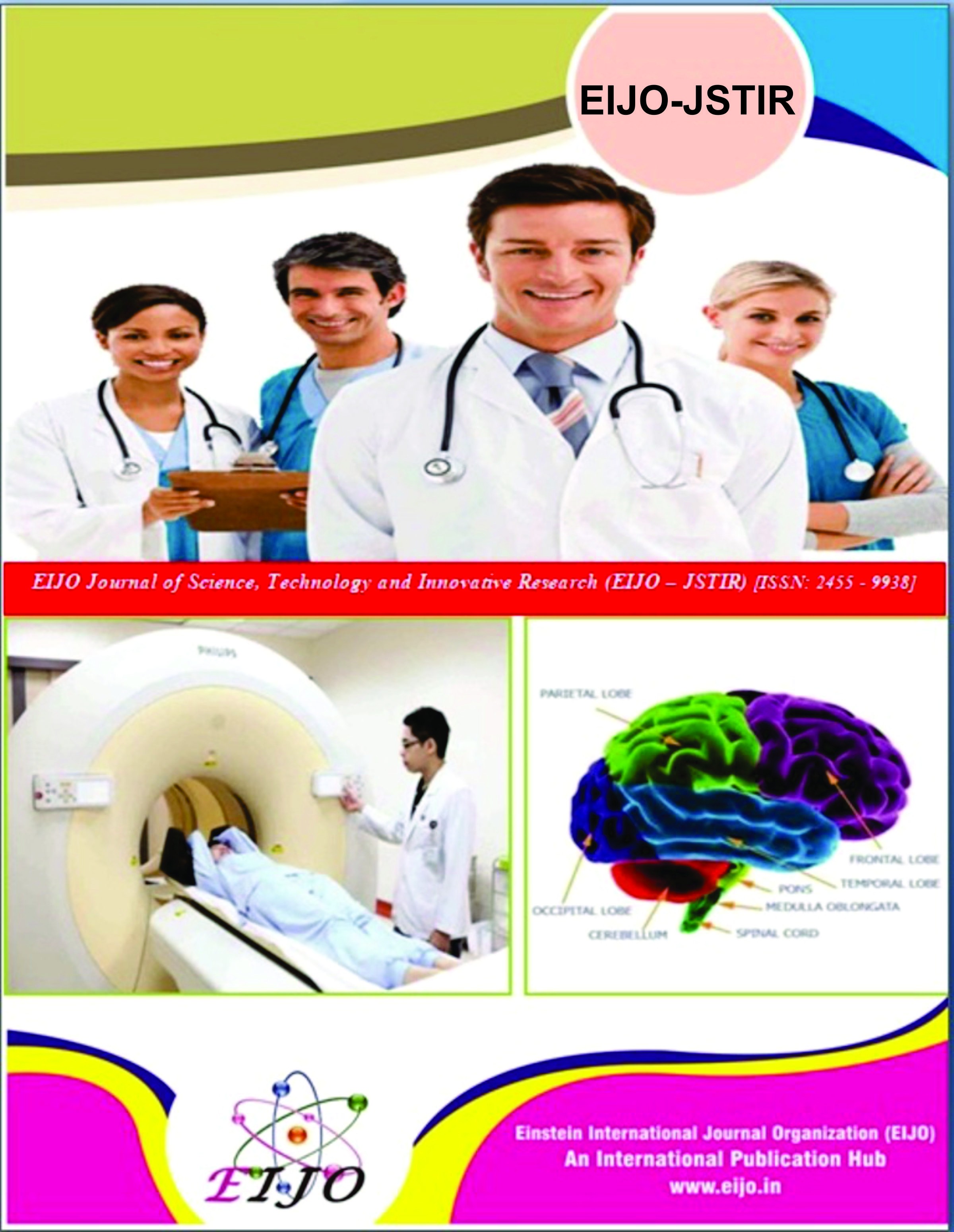JOURNALS || EIJO Journal of Science, Technology and Innovative Research (EIJO – JSTIR) [ ISSN : 2455 - 9938 ]
Abstract
Introduction: Adolescence is a critical stage of development characterized by physical, psychological, and social changes. Unhealthy eating habits, such as the consumption of junk food, pose significant health risks to adolescents. This study aims to assess the effectiveness of a Health Teaching Program (HTP) in improving adolescents' knowledge of the health hazards of junk food. The study was conducted in selected senior secondary schools in Jaipur, India.
Method: The study utilized an evaluative research approach with a pre-experimental, one-group pre-test-post-test design. A sample of 120 adolescents was selected through convenient sampling. A structured knowledge questionnaire consisting of demographic information and 30 items on junk food, its nutritive value, and associated health hazards was used.
Results: The majority of participants were between 15 and 17 years old, residing in urban areas, and receiving pocket money. Most had prior information about junk food, obtained primarily from mass media. Fast food corners were the main source of junk food consumption. The HTP significantly improved adolescents' knowledge scores, with a notable increase in understanding the nutritive value of junk food and its associated health hazards. Statistical analysis demonstrated a significant difference between pre-test and post-test knowledge scores.
Conclusion: The study findings demonstrate the effectiveness of the Health Teaching Program in enhancing adolescents' knowledge of the health hazards of junk food. Educational interventions are crucial in promoting awareness and empowering adolescents to make informed dietary choices. These results provide valuable insights for the development and implementation of future health teaching programs targeting unhealthy eating habits among adolescents. By equipping adolescents with accurate knowledge, they can make healthier choices and reduce the associated health risks. Continued efforts in developing effective health teaching programs will contribute to improving adolescent health outcomes and overall well-being.
Keywords: Adolescence, Junk Food, Health Teaching Program, Knowledge, Effectiveness.
- World Health Organization Noncommunicable Diseases. Available online: https://www.who.int/en/news-room/fact-sheets/detail/noncommunicable-diseases
- GBD 2017 Diet Collaborators Health effects of dietary risks in 195 countries, 1990–2017: A systematic analysis for the Global Burden of Disease Study 2017. Lancet. 2019;393:1958–1972. doi: 10.1016/S0140-6736(19)30041-8.
- World Cancer Research Fund International . The Link between Food, Nutrition, Diet and Non-Communicable Diseases. 2nd ed. World Cancer Research Fund International; London, UK: 2014.
- United Nations System Standing Committee on Nutrition . Non-Communicable Diseases, Diets and Nutrition. United Nations System Standing Committee on Nutrition; Rome, Italy: 2018.
- NatCen Social Research M.E.W.L. National Diet and Nutrition Survey: Results from Years 7 and 8 (Combined) Department of Health and Social Care; London, UK: 2018.
- Batis C., Aburto T.C., Sanchez-Pimienta T.G., Pedraza L.S., Rivera J.A. Adherence to Dietary Recommendations for Food Group Intakes Is Low in the Mexican Population. J. Nutr. 2016;146:1897S–1906S. doi: 10.3945/jn.115.219626.
- Centre for Health Protection . Report of Population Health Survey 2014/15. Department of Health, HKSAR; Hong Kong, China: 2017.



